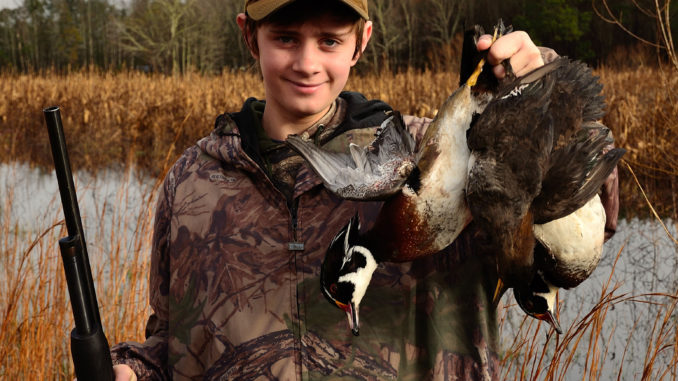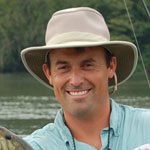
December: Great, but limit the hunting pressure
Thanksgiving weekend closed out the short, teaser sessions that primed the valves and got every waterfowl hunter excited about bagging a limit of ducks in the Carolinas’ flooded country. For the first week or so of December, hunters and the hunted get a little break, but the remaining portion of the waterfowl season will arrive in little time at all. Duck hunters need to regroup, plan and prepare for their last hurrah for the best hunting of the year.
More than 75 percent of the annual duck harvest occurs during the late waterfowl season, and for good reason. December is considered the peak of the fall migration, with some of the highest duck concentrations populating the Carolinas’ flooded paradises. With the shortening days and seasonal weather, good waterfowl habitat fills up with huge flocks of feathered migrants. From bays and rivers to swamps and flooded grain fields, ducks will arrive famished and ready to refuel on the carbohydrate-rich groceries for which the Southeast is well known.
But any waterfowl hunter will tell you that the January portion of the season is nothing to write off, either. There is no doubt that the direct Canadian migrations slow during January, but new flocks of ducks will push into the Carolinas overnight from lockouts and harsh weather in neighboring states to the north. Some of the best hunting occurs in January in the Carolinas.
With the best duck arriving this month, hunters need to stay organized and loyal to their hunting plans. Even though ducks only have brains the size of a garbanzo bean, they are relatively intelligent, with a significant memory capacity to remember where to go and where not to go, and ducks are super-sensitive to hunting pressure. Most places ducks frequent year after year are a direct result of a rich food source with light hunting pressure, so hunters need to ensure that they plan their hunts with the next season in mind. If hunters want to have productive hunts this season and in years to come, limited hunting pressure needs to be at the top of the list for the remaining days in the duck blind.
In a perfect world where hunters have dozens of places to collect a limit, specific areas should be only hunted once every 10 to 14 days. Once a week is acceptable and even twice a week on non-consecutive days can work out as long as the morning hunts are limited to two to three hours. Hunts beginning at sunrise should never extend past noon, because ducks need a chance to feed without constantly dodging a steel shower.
A hunting calendar with set hunting days and times should be established for both impoundment, swamps and open water hunts. While hunting carries the greatest threat for ducks around major food sources, any kind of unnecessary disturbance should be avoided at all costs to allow birds to feed and rest throughout the day.
Ducks need protected resting areas in addition to rich feeding areas. Often, they will fly to large bodies of water and raft up where they can see long distances. It is a way for them to rest and stay protected from predation.
If feasible, hunting clubs should designate permanent rest areas closed to hunting and any kind of other human-induced disturbances. Even though a few impoundments with heavy hunting pressure may be close by, ducks will stay in the area if they have a protected refuge they can go to elude dangerous situations.
Ducks are very sensitive to pressure. Hunters can limit gun days and provide sanctuaries to improve their hunting season. Otherwise, they can expect ducks to pick up and move 10 or 100 miles away to places with fewer hazards, leaving hunters with cold feet and a surplus of shotgun shells.




Be the first to comment